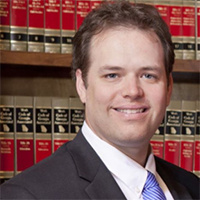Lincolnton Criminal Lawyer, Georgia
Sponsored Law Firm
-
 x
x

Click For More Info:
-
Ronald Baker Attorney at Law
11877 Douglas Rd Suite 102191 Johns Creek, GA 30005» view mapIntellectual Property Law Working Relentlessly For You
Ronald Baker is a practicing lawyer in Georgia who handles cases involving Intellectual Property Law.
800-597-8640
Richard Hays Goolsby
✓ VERIFIEDDivorce & Family Law, Criminal, Wills & Probate, Accident & Injury
Richard Hays Goolsby, Jr. currently practices law in both Georgia and South Carolina and is a proud member of both bar associations. Richard, Jr. foun... (more)
Aubrey C. Rhodes
Estate Planning, Estate, Criminal, Business
Status: In Good Standing Licensed: 47 Years
David Stephen Klein
Government, Divorce & Family Law, Criminal, Accident & Injury
Status: In Good Standing Licensed: 19 Years
David V. Weber
Federal Trial Practice, Federal Appellate Practice, Government, Criminal
Status: In Good Standing Licensed: 48 Years
Adam William King
Landlord-Tenant, Traffic, Criminal, Accident & Injury
Status: In Good Standing Licensed: 18 Years
Treza Latrail Edwards
Lawsuit & Dispute, Wills, Divorce & Family Law, Criminal
Status: In Good Standing Licensed: 18 Years
Alex Matthew Brown
Family Law, Divorce & Family Law, Criminal, Accident & Injury
Status: In Good Standing
Elizabeth C. Calhoun
Estate, Criminal, Insurance, Business
Status: In Good Standing Licensed: 53 Years
Treza Latrail Edwards
Lawsuit & Dispute, Wills, Trusts, Criminal
Status: In Good Standing Licensed: 18 Years
 Ronald Baker Johns Creek, GA
Ronald Baker Johns Creek, GA

